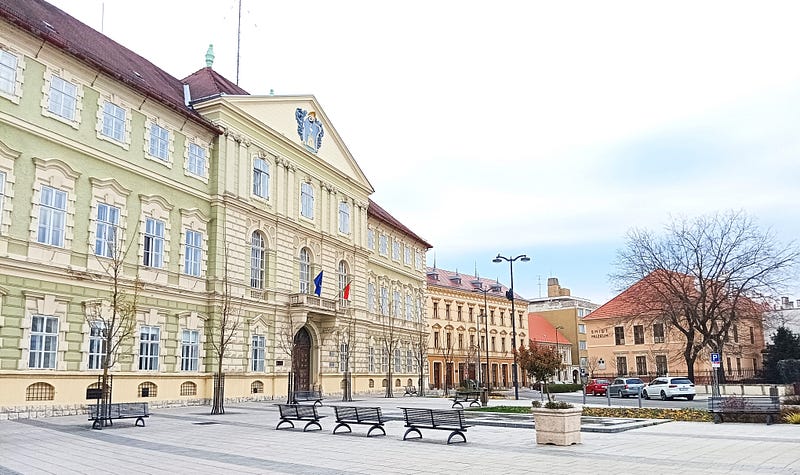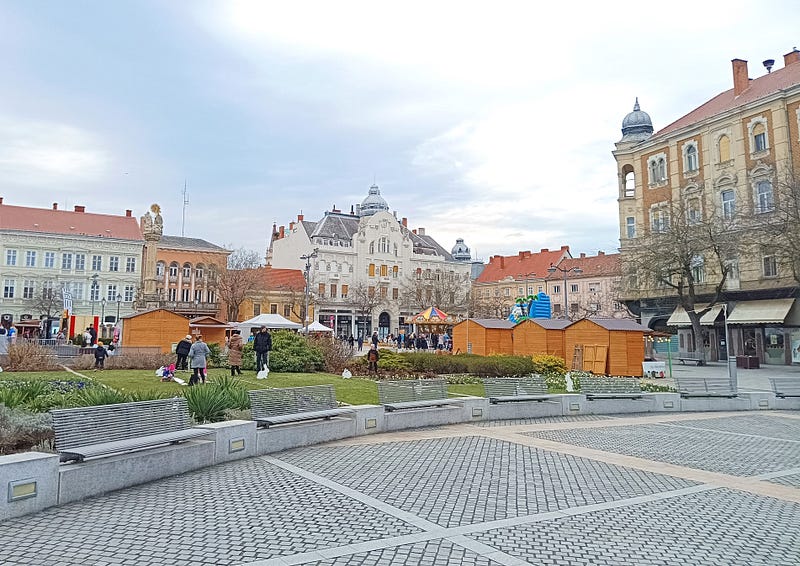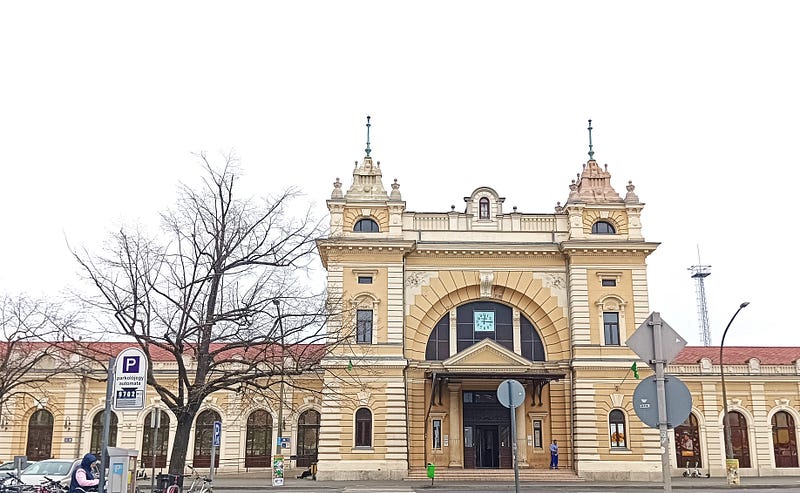A Journey Through Szombathely: The Language Barrier Experience
Written on
Chapter 1: Embracing the Unexpected in Hungary
Traveling to Hungary has always been an adventure filled with spontaneity. Every trip has been marked by a lack of meticulous planning, and this recent journey was no exception. Instead of starting in Budapest as I usually do, I flew into neighboring Austria and ventured into the lesser-known western region of Hungary.
While I had picked up a modest Hungarian vocabulary over several visits—around 100 words and phrases—Hungarian is a unique Uralic language, making it challenging to rely solely on a limited lexicon. Thus, English became my primary fallback. In past experiences, I had found that locals were generally proficient in English, which made navigating the country manageable. Additionally, the western part of Hungary has a significant German-speaking population due to its proximity to Austria, providing another option for communication.
I was fortunate to establish Sopron as my first base. While many locals communicated in German, I also encountered several who spoke English. However, my luck was soon about to change.
Section 1.1: The First Challenge at the Station
After a couple of days in Sopron, I set my sights on Szombathely. My first challenge arose at the railway station, where I found myself feeling somewhat helpless. The ticket clerk couldn’t converse in either German or English; her preferred method of communication was writing on paper. When I mentioned Szombathely, she scribbled down a number, indicating the train’s departure time. Attempts to engage in dialogue proved fruitless, and I soon realized I needed to seek assistance elsewhere.
I headed to the information center, where thankfully, a helpful staff member spoke German and was able to guide me. This experience reinforced the notion that effective communication often requires adaptability and a willingness to seek alternative solutions.
Subsection 1.1.1: A Scenic Journey

The next morning, I boarded a well-maintained train for the scenic hour-long journey from Sopron to Szombathely. The route featured ten unique stations, each with its charm, ranging from beautifully preserved to somewhat neglected.
As the train approached its destination, I stood to exit and encountered a lady with a pram. She spoke rapidly in Hungarian, and despite my efforts to grasp the conversation, I found myself at a loss. Assuming she wanted to exit first, I gestured for her to go ahead. However, she appeared frustrated as the door opened, struggling with her pram and luggage.
I quickly intervened to assist her, lifting the pram out so she could focus on her bags. "Köszönöm," she said with a grateful smile—Hungarian for "thank you." This moment highlighted the significance of non-verbal communication and the willingness to assist, even amid language barriers.
Section 1.2: Discovering Szombathely
Szombathely, whose name translates to "Saturday place" in Hungarian, is the 10th largest city in Hungary and serves as the administrative center of Vas County. Like Sopron, Szombathely has both a Hungarian and a German name, and its history is intertwined with the Roman Empire, as it was built upon the ruins of the ancient city of Savaria. The Savaria Museum offers insights into the rich heritage of the area.
Though the walk from the central station to the Main Square was longer than I anticipated, I hoped to uncover something unique along the way. Unfortunately, I was left feeling a bit disheartened, but the Main Square proved to be a vibrant and lively hub.

Here, I relished a leisurely stroll, admiring the blend of Art Nouveau and Baroque architecture while capturing the essence of the city with my camera. As I approached a historic fountain, I was approached by a couple of young men who appeared to be tourists.
“You speaking English?” one managed to ask after some hesitation.
“I speak excellent English. Do you?” I replied, catching them off guard. I then switched to German and even attempted a few Hungarian phrases, but my efforts were met with blank stares. It soon became clear that they were trying to engage in a scam involving watermelon juice. Finding humor in the situation, I asked, “Where are the watermelons? Show me, and I’ll give you the money.”

This interaction quickly fizzled out, and they vanished, ice-creams in hand when I saw them again. This experience underscored how a lack of understanding can lead to amusing situations, and the importance of being resourceful in communication.
Chapter 2: The Lessons Learned
These three distinct moments in Szombathely reaffirmed the necessity of finding solutions despite language barriers. They emphasized that persistence in communication often leads to favorable outcomes.
Speak English FLUENTLY in 30 Days: The Truth This video discusses the realistic expectations of achieving fluency in English within a month, showcasing practical tips and methods.
How to Speak Fluent English in 2023 This video explores contemporary strategies for mastering English, offering insights that can help learners improve their language skills effectively.